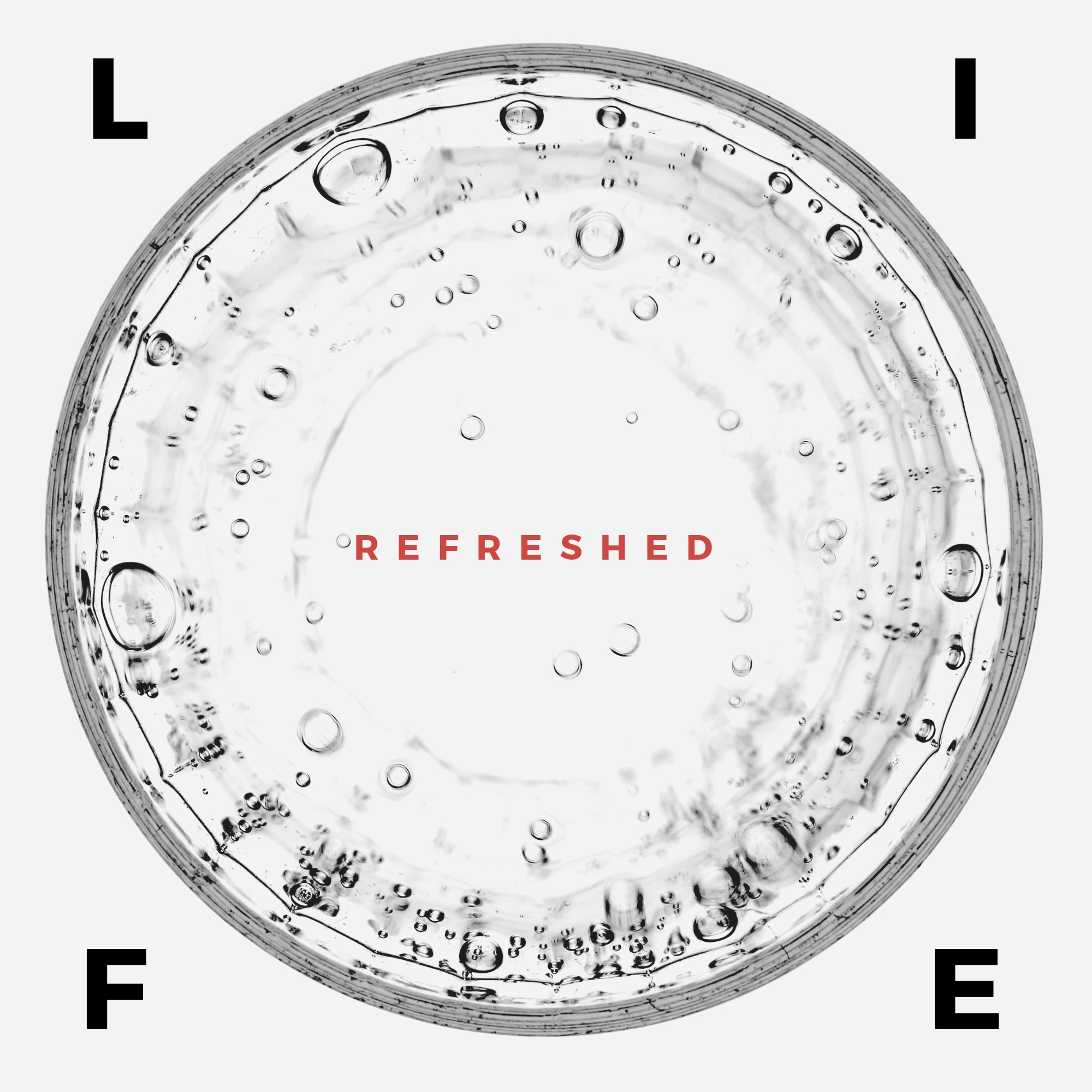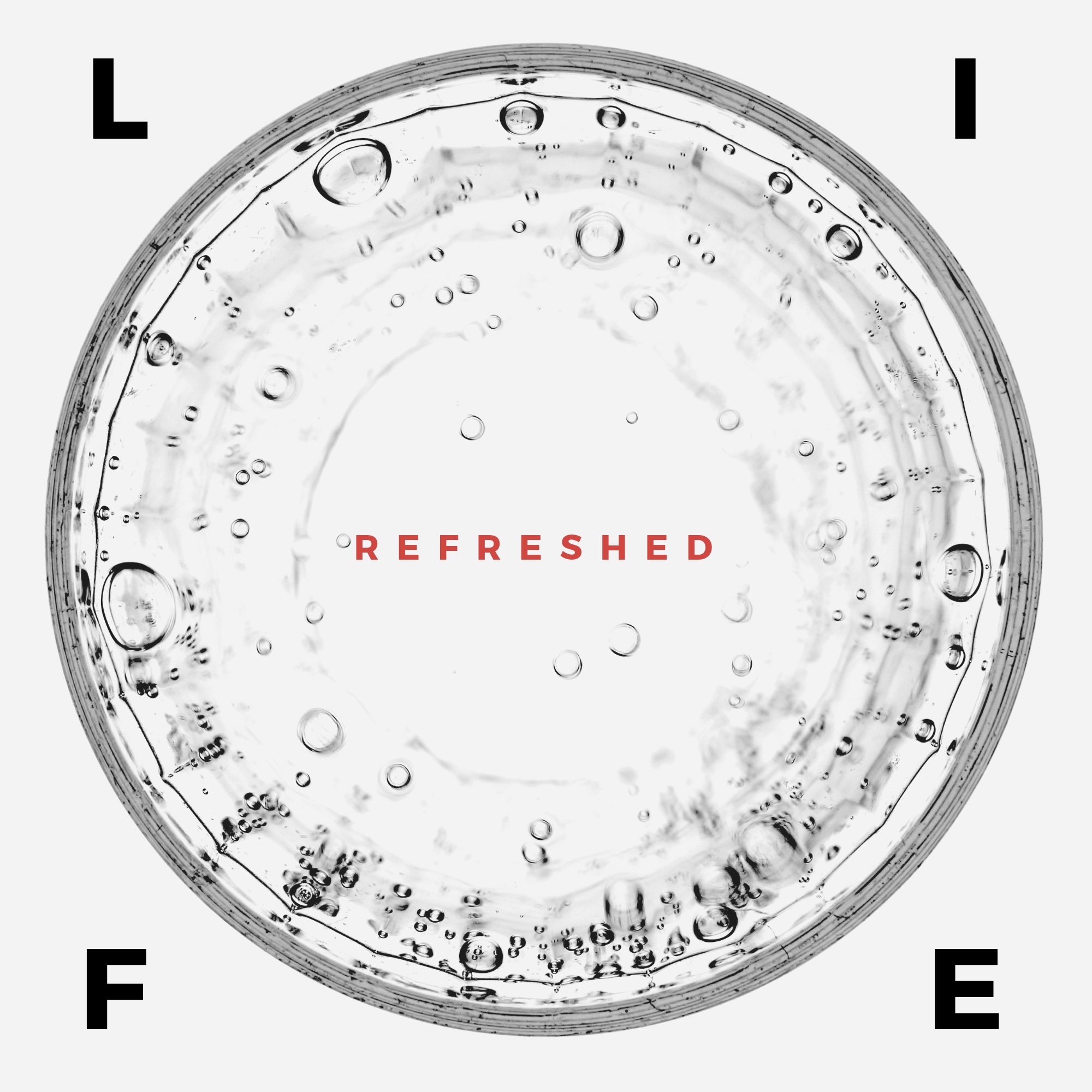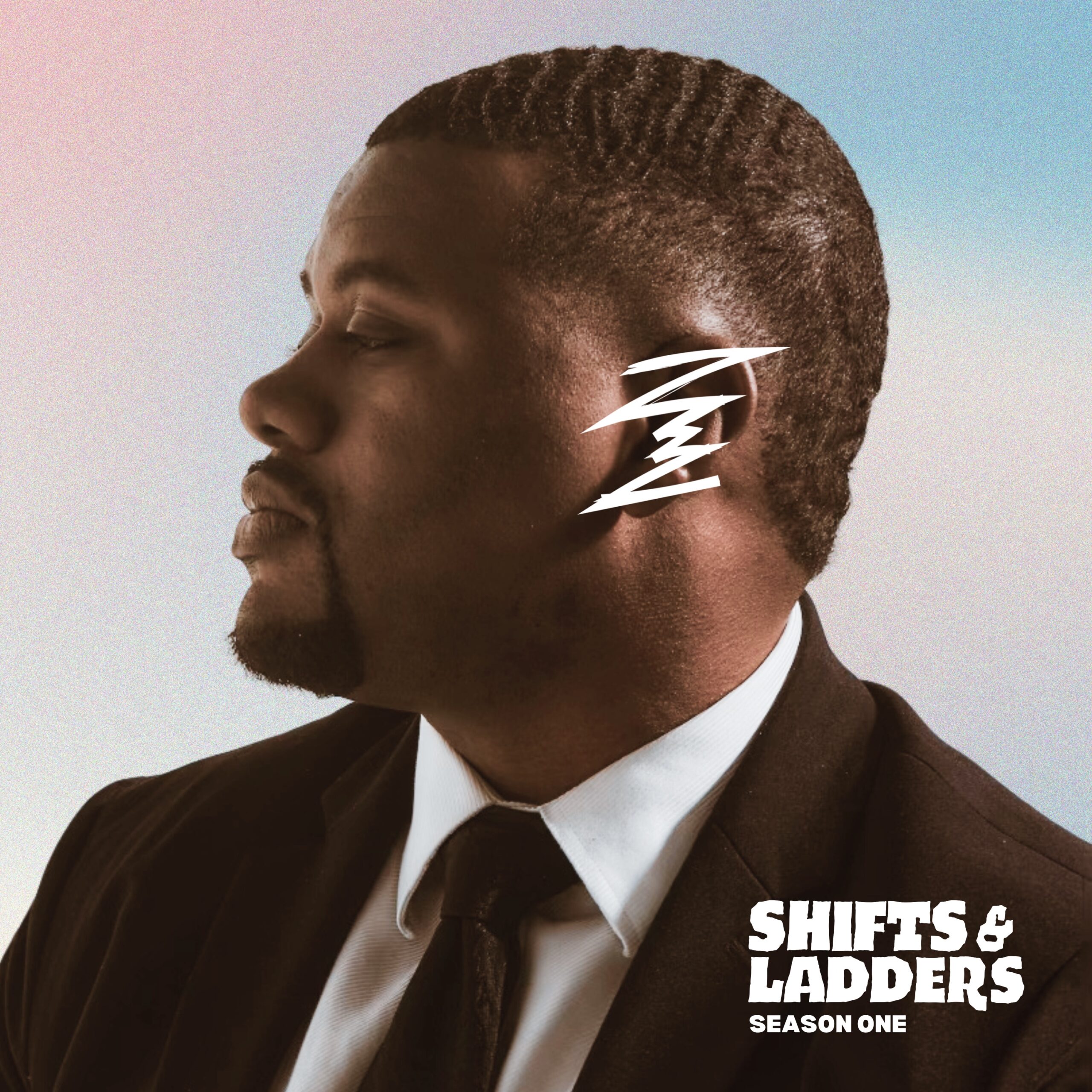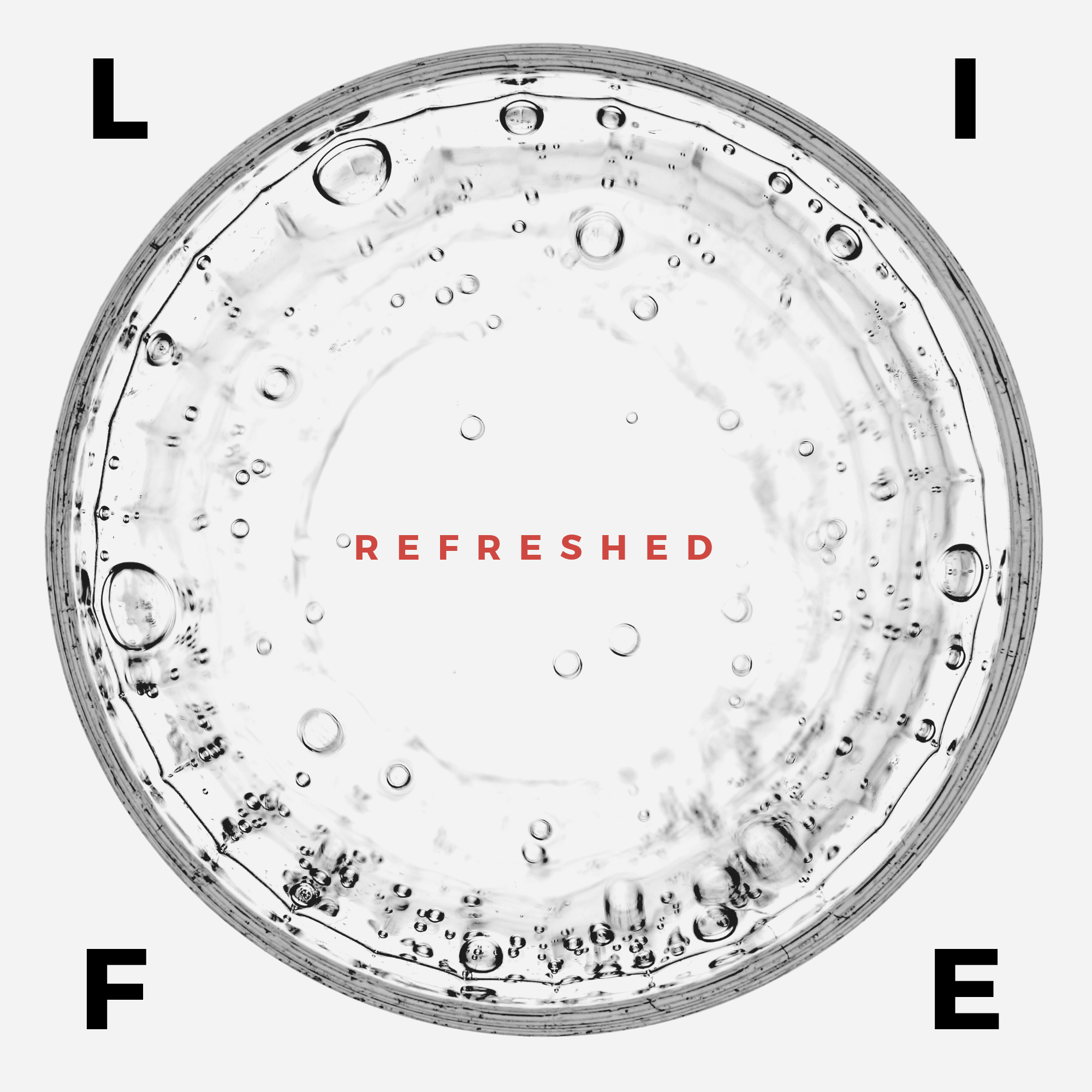Episode Transcript
Speaker 0 00:00:00 Welcome to the Life Refresh podcast. My name is Ryan Robinson, and if you are looking for a podcast that is designed to uplift, encourage and revive your heart, mind, and spirit, you're in the right place. Welcome to the journey of Becoming the version of You God designed from the foundations of the earth. Now, let's begin. Hello everyone. Thank you for listening to the Life Refresh podcast. You know who it is, it is Ryan Robinson. Uh, if you haven't yet, share this podcast with someone I'm excited about this particular topic, and we're gonna kind of dive into this topic, uh, several weeks here around just connection with people. This, I think I've been finding that, um, over the year or so, there's a lot of things that make it really difficult to connect with, with people, excuse me, in general, um, circumstances, frustration, lack of connecting connectivity or understanding.
Speaker 0 00:01:05 You know, there's so many things that have happened, uh, over the last, you know, several years with George Floyd. I know it's still, it's still fresh, it's still for me, gun laws and violence happening and people sensely getting killed for, for unfortunate circumstances. I don't know the reason. And it is, it is just overwhelming sometimes. And I, I feel what happens is that many of us get in a circumstance where we've almost lost the ability to feel or understand where someone is at time. I think it really comes to the fact that we've maybe misinterpreted certain attributes of connectivity when it comes to another human being. Um, and, and, and one of them is, is the thought of, of sympathy or empathy. And one of the things, what we're gonna start off with is I want, we wanna start off with sympathy, but I really want to help us understand that sympathy is not the right way that we connect with each other, okay?
Speaker 0 00:02:13 And I'm talking about from human to human, person to person. I wanna pull from scripture here to be the catalyst, maybe by which we pull some detail from, uh, the scriptures to, to talk about this a little bit and almost talk about it from Hebrews chapter four, beginning at verse 14. And what we'll do is, we'll also, we'll pull in John chapter one, uh, in this as well, because John chapter one pulls in a few different, well, another perspective of the same. But I really want us to understand like, Hey, this is actually really important to understand that why Jesus won is the high priest and the perfect sacrifice for us. But then what, in his example was he able to connect with us in it and understand what we've gone through, as well as help us have a way to live better in order to fill our calling and our purpose for our life.
Speaker 0 00:03:17 So I'm gonna start with Hebrews chapter four, verse 14. It says this, since then, we have a great high priest, meaning Jesus, who has passed into the heavens. Jesus, the Son of God, let us hold firmly to our confession, for we do not have a high priest who cannot sympathize with our weakness, but one who was in every sense, tempted like we are yet without sin. Let us come with confidence to the throne of grace, that we may obtain mercy and find grace to help in time of need. Okay? And the word sympathize was in this word, in this scripture, and we'll, we'll talk about what that means. And then next is John chapter one. And we'll go to verse 14 there. And it says this, the word became flesh and duong us. And we saw His glory, the glory as the only son of the Father full of grace, both, and for you from a previous podcast.
Speaker 0 00:04:20 So there's a real huge, um, deline, uh, I would say delineation, but clarification as to why did we s why did I select this, these scriptures, okay, there are points where we've all had sympathy for someone. Um, and it, it's, again, it is a, something that we typically have when there's a major situation that happens. You know, if there's hurricanes or, or, or certain circumstances in a country, you know, let's say pray for Orlando or pray for wherever the case is. It lasts for a little bit and then it goes away. At least the big bravado are the big public effort of it goes away. But people don't realize it. Just because it went away and the public doesn't mean it's, there's not ramifications locally that have to be dealt with. So the hard part about it is it, it makes it difficult for us to connect with one another.
Speaker 0 00:05:17 And most of the time, particularly when we're all going through tough times or individually going through tough times, the words sympathy and empathy get used interchangeably. And when we misuse words or understand words like sympathy and empathy, even though they are very, they have, uh, they sound the same, they have quite different meanings. Um, but the difference in sympathy is rooted in a little bit of a different kind of context that I feel like as a country, as a culture in general, we do a lot more sympathy work and not enough empathy work. I'm gonna say that again. We do a lot of sympathy work and not enough empathy work. So let's talk about what that causes, because honestly, I feel that sympathy actually creates a level of separation between the individual who's been hurt or who's going through a tough time. And the person who is expressing the, the sympathy, it is difficult.
Speaker 0 00:06:27 So let me explain it. Let's go to the dictionary first. A Marion Webster defines sympathy as the feeling that you care about and are sorry about someone else's trouble, grief, misfortune, et cetera. And there are many times, you know, that where sympathy is an appropriate emotion for a difficult situation. However, honestly, sympathy separates you from the person struggling. So, so let me give this a little, a little, um, I'm gonna put a little Brene Brown on this. Brene Brown describes sympathy as this a way to stay out of touch with our own emotions and make our connections. Transactional sympathy puts the person struggling in a place of judgment more than understanding. A person seeks to make sense of a situation or look at it from their own perspective. Okay? This one's powerful sympathy makes you feel outta touch with our own emotions and, and makes our connections transactional.
Speaker 0 00:07:34 It gives us a point to be like, ah, man, I feel bad. I feel bad too, <laugh>. And, and you are focusing on a common connection with that individual about the circumstance, but never really digging in more than you should, or you, you should, or invest as much. It, it literally puts your own perspective on the matter. I said, oh man, I, I, you know, I I wouldn't have been upset if that happened, or in many cases it's like, man, I can't relate to that <laugh> feel bad. Can't really relate though. So what it does is it, it makes it, so the words of pray for someplace, I don't know what you're praying for <laugh> when it comes to a circumstance that hits a country or hits a community. But the prayer typically isn't one of, of, again, I'm not as, I'm not judging, uh, uh, many other people's prayers because I don't really know, I don't know how people pray for circumstances like that, but sometimes we pray to make us feel better because we don't know what else to do.
Speaker 0 00:08:46 It might be an uncomfortable matter that you saw something on tv, and I think it has been said from the George Floyd video that would've been posted online. It actually triggered a lot of people to have a, a very sensitive response to it, and it set people off to make some kind of movement because they felt some kind of way about it. They sympathize in a really real way, in a real, I mean, you couldn't, you couldn't avoid it. It's a proper emotion To have, to see that on, to see that captured in real time is difficult. So the thing that we start to do is we start to try and make ourselves feel good by reaching out to someone because it makes us feel better about ourselves and not the feelings that we're dealing with. And what ends up happening is you make this barrier of, you know, I'm with, I'm, I'm with them.
Speaker 0 00:09:44 I have an ally, and I get, I understand having an ally and all that stuff. I think it's great. I think it's great to have an ally, but there's a time and a place for us to have that because when everything's good, then guess what? Everything's good. Nobody's thinking about it. And everyone goes back to their own perspective of what's happening in their own life. Now, when a person is sympathetic, they may give you some helpful advice or look to someone with pity. They might be relieved that they're not in the same struggle too. They'll ignore the difficult feelings and the triggers that may arise from the situation and, and be like, oh, well, I gotta help you. This is what I gotta do, da da, da da. And you know what? That's all great and all, but the thing is, the person who's struggling, the person who can't see the light at the end of the tunnel, may not feel heard because you think what you're doing is gonna be best for me.
Speaker 0 00:10:36 And honestly, at the time, I don't really need a solution. I I'm already in it right now. And because we do this and because people feel a certain way, we do things to make ourselves feel better and not necessarily understand where people are and enjoy the gift of sitting with someone. Now, again, I'm not doubting, the sympathy is not an appropriate response for something. If you don't know someone, well, you're not close to them. And, and especially if they've lost someone close to them, sending a sympathy card is cool, especially if you're not close. It shows that you're caring, it shows that you understand and it keeps relatively the appropriate amount of social distance to not make you feel like you're a creep <laugh>, right? Uh, I think those are just important things to know, right? There's a big difference between the two. So if it's a, an acquaintance or, um, someone from your job that you're not particularly close to, you know, those sympathetic gestures are a social norm for a personal crisis, it's fine.
Speaker 0 00:11:41 But the thing is, that's when you don't have closeness with someone. If I don't know you, but I'm like, dang, I that, that's a big time, man, I, I'd, I'd, I'd struggle with that myself, then, you know, that's cool, but at the end of the day, you're still keeping your distance, right? If I didn't know you and you start trying to be my counselor, or be a friend for me and to talk to me now, I'm like, I don't even know you enough to share my deepest feelings with you. Why are you here? And that's the sympathy part that we, we, we don't understand. But then we, the reason why we get this mixed up is that we think that being sympathetic is being empathetic, but those are two completely different things. Sympathy has a way of protecting an individual from feeling what they've observed, what they could be experiencing internally, those triggers, et cetera.
Speaker 0 00:12:35 And, and with that being said, why did I start off with the scriptures of being, of sympathy, <laugh> of high priest in the word becoming flesh and dwelling among us. I believe God is the only one who can truly sympathize with people in the sense that God is above, God is in heaven, he's not here. His his spirit is here. So that's that. We can go in that another podcast. That's a whole nother topic I just opened up. But we know that God is everywhere, right? He's omnipresent. The thing is, in order to have relationship with someone, there has to be an acknowledgement of who you really are. Okay? So sympathy because Jesus came that we may have life and that more abundantly, meaning that we have eternal life. John three 16 says, for God so loved the world that he gave is only begotten son that whosoever believes in him shall not perish, but have everlasting life.
Speaker 0 00:13:42 Okay? Now there's another part to this that I want to bring up is that after John three 16 is read, there is a another thing that says, for God did not send his son into the world to condemn the world, but that the world through him might be saved. He who believes in him is not condemned, but he who does not believe is condemned already, cuz he has not believed in the name of the only begotten son of God. Okay? So leave that, we'll put a p a pin right there. Why is this important? We are all God's creation. Okay? I want to, I want to double highlight it in bold. We are all God's creation, but we are not all, but everyone is not a child of God. Okay? What's the difference? What's the difference? And why was sympathy used? Because we are all God's creation and genesis, it says, we were made in the image and lightness of God, which means we exhibit image bearing qualities of a creative God.
Speaker 0 00:14:49 So people that don't, do not proclaim God or Jesus' Lord and Savior still have the ability to create stuff. I mean, they, people build buildings, they design things. They may not have a particular life, a worldview built around, uh, Christianity. But incredible people have done amazing things and don't necessarily believe that there is a God or believe that Jesus is Lord. That doesn't mean that they can't create anything. It's by default, by creation, building, <laugh>, the way they've been built and designed by God. They have the ability to create stuff. So that in itself is more of a transactional thing because once we've died, well, we've died to our flesh. We were, were born in sin due to Adam's sin, by eating the fruit of the knowledge of, of good and evil by eating of the tree of the knowledge of good and evil. There we go.
Speaker 0 00:15:45 And it st it put us in a sinful state, which means we were, we lost connection to God. Okay? I said that Jesus came, that we may have life in that more abundantly. Jesus's sacrifice, his death and resurrection is designed to bridge back divine connection to God that now acknowledges you as a son or a daughter or a child of God, okay? No matter what the circumstance or what your previous circumstance has been. Okay? So you can confess Jesus's Lord and you that you believe in Jesus Bible says, if you confess with your heart, confess with your mouth and leave your heart, Lord Jesus, you'll be saved. I paraphrase that, but that means your past is no longer a thing to God. It is wiped away because Jesus wiped away your sins. That's what I, that's what I believe. So in Hebrews chapter four, it gives us the indication that Jesus, that God had sympathy for the world, meaning he felt bad.
Speaker 0 00:16:56 So he provided a way, an opportunity for connection to be made back to him by someone who has empathy for us. Because they didn't just look high and then just fell bad for us. Jesus. The word that became flesh and dwelt among us became who we are to understand and empathize the human experience. He was born like we're all born, he died like every human dies, not in the same circumstances, but he died. Okay? And then we believe, I believe Christians believe for the most part <laugh> that Jesus, that God raised Jesus from the dead. Okay? So the thing is, since we've established that sympathy is only made in the context of an appropriate social distance perspective, meaning I'm not gonna cross your line, I'm not going to a start asking more of you. I'm just gonna be, I'm gonna let you know I feel bad.
Speaker 0 00:18:09 I wanna make, I wanna find a way to make it better for you. The only way I can believe that you want to be better is I need you to empathize with me. I need you to do and be and live the way I've lived to at least to try and understand it so that when I do have a call for help, when I do cry at night, when I do get frustrated, when I felt, when I feel misunderstood, I have someone who can at least understand how I feel about it. That is empathy. And empathy comes into the picture. When there is a genuine, authentic connection with the individual going through trouble times. This concept is so important cuz no one has ever taught us the difference between sympathy and empathy. It is so critically important that we use and learn how to appropriately ply not just the word, but the actions to deepen relationship. Don't. If we don't, we'll continue to perpetuate this system of I see you, but I think something different. I see that you're crying, but I still need you to do something else. It makes it so callous. And unfortunately because we've have two words that are so closely in verbiage, it gives us the inability to sometimes authentically connect. So in the next podcast we're actually gonna talk about what is empathy. And uh, make sure you tell us, share this with someone. I'm telling you, this will change the game for you relationships.
Speaker 0 00:19:56 So.





